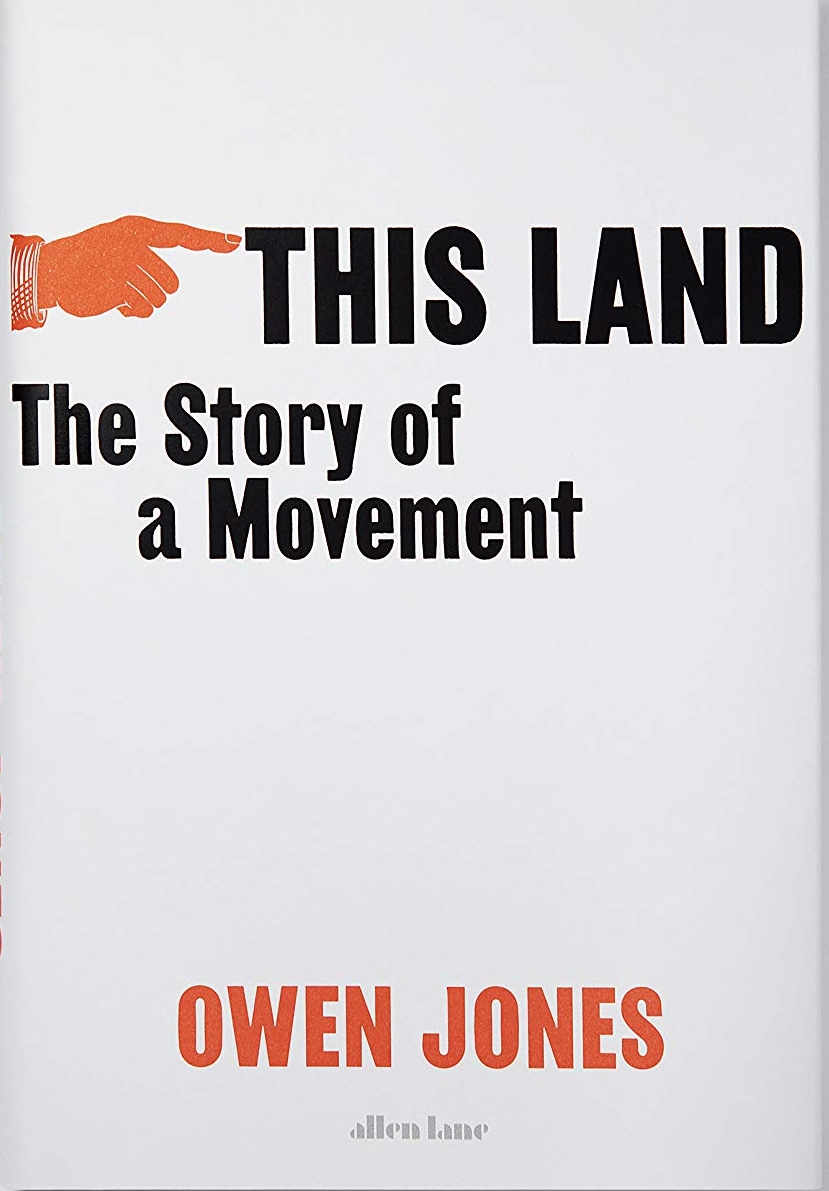Owen Jones’ latest book chronicles the Corbyn years, offering an insider’s view on the problems faced by the Labour left. But the author fails to draw the key lesson from these events: that we need bold and militant leadership.
In his new book This Land: The Story of a Movement, Owen Jones, a long standing figure on the Labour left, provides his musings on the rise and fall of the Corbyn movement. Impressively, however, for someone so integrally tied to the Corbyn phenomena, he manages to spend over 300 pages entirely missing the point.
The Guardian journalist gets into the nitty gritty of what happened at the top of the Labour left during the Corbyn era. In the process, he exposes some unsurprising – but nonetheless interesting – stories about the battles inside the PLP.
But in doing so, he completely overlooks the real political content of this struggle. Instead of explaining the class interests at play, he dumbs down Labour’s civil war to one of personalities.
If anything, this book shows the political weakness of those like Jones himself. Despite claiming to want to break from parliamentary cretinism, he and other similar trendy ‘lefts’ consistently buy into this broken status quo.
In short, Jones has learnt nothing from the past five years. And as the current struggle in the Labour Party and timidity of the left leaders show – those who do not learn from history are doomed to repeat it.
Playing the game
 Figures such as Jones fear mobilising a movement outside of the structures of Parliament. Yet, ironically, it was precisely the idea of breaking from Westminster’s establishment politics that was the basis for Corbyn’s popularity.
Figures such as Jones fear mobilising a movement outside of the structures of Parliament. Yet, ironically, it was precisely the idea of breaking from Westminster’s establishment politics that was the basis for Corbyn’s popularity.
Jones writes that “we captured the top of the party by accident”. As a result, he says, the leadership of the Corbyn project was inexperienced. Throughout these years, therefore, it struggled to hold its head above the water.
However, the author’s solution to this is the suggestion that Corbyn and co. should have attempted to look and behave more like traditional, ‘respectable’ parliamentarians. In other words, Jones believes that Corbyn should have moderated himself more, and ‘played the game’.
In reality, it was the opposite. What the leadership of the left lacked, and what Jones fails to recognise, is the need for audacity and boldness. Far from restraining themselves and compromising, Corbyn and McDonnell should have pushed farther, and had confidence in the movement behind them.
Anti-establishment
 Throughout the first section of the book, ‘The Rise’, Jones focuses on the most superficial elements of the Corbyn phenomena, discussing the personality traits of various left wingers around the leadership campaign.
Throughout the first section of the book, ‘The Rise’, Jones focuses on the most superficial elements of the Corbyn phenomena, discussing the personality traits of various left wingers around the leadership campaign.
The author spends almost an entire page recalling how Corbyn gifted jam from his allotment to the Queen on her birthday. His aim is to use this story as an allegory for the inexperience of the Corbyn project.
But what this passage really lays bare is the conservatism of those in Corbyn’s team, who constantly pushed for the Labour leader to take up the cultures and norms of Britain’s cretinous political system.
Of course, what should be clear from the Corbyn years is workers and youth were not looking for someone to abide by the norms of establishment politics. For those who flooded into the Labour Party after 2015, the attraction of Corbyn was precisely that he represented a break with this rotten political setup.
Indeed, Jones even pays lip service to this fact, saying: “What attracted so many to this strikingly unconventional leader – apart from his politics – was a sense of decency and integrity.”
Jones’ critiques of Corbyn – for not understanding parliamentary cultures – do not hold up in the slightest. The ‘strategists’ in Corbyn’s team, those pushing him to look and sound more like a ‘normal’ politician, were the ones out of step with the anti-establishment mood in society.
People looked to Corbyn because he campaigned around the idea that the current system is broken. Grassroots activists did not want a ‘clever’ strategic campaign, but a movement based on a socialist vision of society.
Fatalism
 Jones then goes on to provide his analysis of Brexit in his chapter ‘The Brexit Bandersnatch’. But this chapter is hardly worth discussing. The author’s entire conclusion is that it was a difficult question, which was always going to cause the Corbyn movement problems.
Jones then goes on to provide his analysis of Brexit in his chapter ‘The Brexit Bandersnatch’. But this chapter is hardly worth discussing. The author’s entire conclusion is that it was a difficult question, which was always going to cause the Corbyn movement problems.
In effect, Jones takes a defeatist attitude, implying that this issue was always going to tear the left apart. As in the Black Mirror episode that the chapter is named after, he says, whatever decision is taken, things will always turn out badly for the protagonist.
There is no mention, however, of how Labour’s turn towards a Remainer second referendum position – which Jones himself pushed – paved the way for the party’s December 2019 electoral defeat. Nor of how Labour and the left could have cut across the Brexit divide with class-based politics.
Instead, the journalist’s fatalistic suggestion is effectively that we should all just hang up our hats and head home.
Misrepresentation
Next up, Jones dedicates an entire chapter to ‘The Anti-Semitism Crisis’. This deserves extensive attention in a book about the Corbyn movement, especially since this question is now being used as the pretext for a purge of the left – starting with Jeremy Corbyn himself.
Drawing the appropriate lessons from these events is therefore vital for orienting ourselves in the midst of today’s chaotic civil war.
Once again, however, Jones superficially examines the surface of what took place, attributing blame in the wrong places and to the wrong ideas.
He begins this chapter by suggesting that Jews have fallen out of favour with the left and have been thrown into the bracket of ‘whiteness’. In turn, he believes anti-semitism has become tolerated where other forms of racism are not.
But this is false on two accounts. Firstly, this is a complete misunderstanding of what claims about ‘institutional anti-semitism’ regarding the Labour Party were ever really about. In reality, the question of anti-semitism was cynically weaponised and exaggerated by Corbyn’s right-wing opponents in order to politically attack and discredit the left.
Secondly, this is a complete misrepresentation of what racism is, and where the left should stand on it. Socialists are not fighting to liberate non-white people while exploiting and oppressing white people more. We stand for the liberation of all people, no matter what skin colour or ethnicity.
Jones goes so far as to disparage left-wing Jews who have defended Corbyn, accusing the left of using them for political point scoring. But at no point does he expose the reality that is obvious to members everywhere: the issue of anti-semitism was whipped up by the right wing to attack the Corbyn movement.
In fact, it was the right wing who used Jewish Labour members as political pawns.
‘Acceptable’
The recent suspension of Corbyn has demonstrated all of this clearly. And true to form, Jones has responded to recent events extremely weakly, taking an equivocal position and refusing to defend the very movement that brought him to prominence.
has demonstrated all of this clearly. And true to form, Jones has responded to recent events extremely weakly, taking an equivocal position and refusing to defend the very movement that brought him to prominence.
In fact, Jones has actively blamed left-wingers who tell the truth for “making matters worse”. It is clear what Jones is suggesting here, as he does throughout this whole book: that the left should retreat and retreat until they are no different from the ‘acceptable’ right wing of the party.
“Acceptable to who?”, is what we ask. The ‘acceptable’ politicians have all been proven – time and time again – to be cranks and liars; puppets of the bourgeoisie. Corbyn expressed something different: a mood of dissent from the masses.
Owen Jones has firmly sided with the ‘pragmatists’ – those who neuter the movement by making the left conform to ‘normal’ politics as much possible. Socialists, on the other hand, should be fighting for bold, radical ideas in the movement, based on mass grassroots mobilisation.
Activists can no longer afford to accept the retreats, compromises, and defeatism of those like Jones. We must fight on the basis of militant working-class struggle and clear socialist policies. The anger and dissent that fuelled the Corbyn movement has not gone away. What is needed is to harness this energy in order to drive out the right wing and fight for real change.
Lessons for today
 In Jones’ final analysis, he admits that the ‘centre ground’ cannot hold. He rightly addresses the rapidly deteriorating material conditions of the world we live in, and states that the old centrist politics of Blairism are dead in the water.
In Jones’ final analysis, he admits that the ‘centre ground’ cannot hold. He rightly addresses the rapidly deteriorating material conditions of the world we live in, and states that the old centrist politics of Blairism are dead in the water.
But the author does not draw the necessary conclusions from this, nor from the experiences of the past five years.
Throughout his writings, Jones criticises the Corbyn leadership for failing to operate like the rest of the parliamentary machinery. But he refuses to do more than pay lip service to the fact that this was exactly why people voted for Corbyn.
The lessons from the Corbyn era for today are clear. The left must reject the idea of ‘unity’ with the Blairites. Instead, we must stand firm and organise a bold socialist fightback against the Labour right wing. This should be the real story of our movement.






